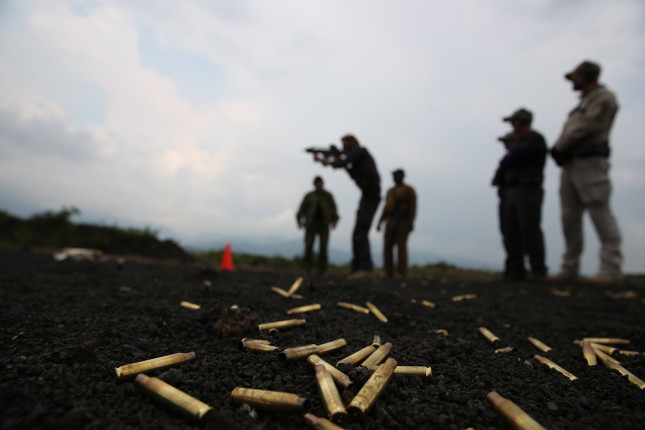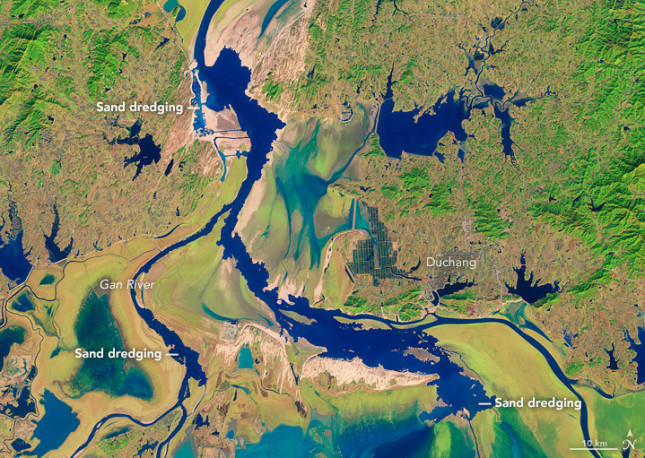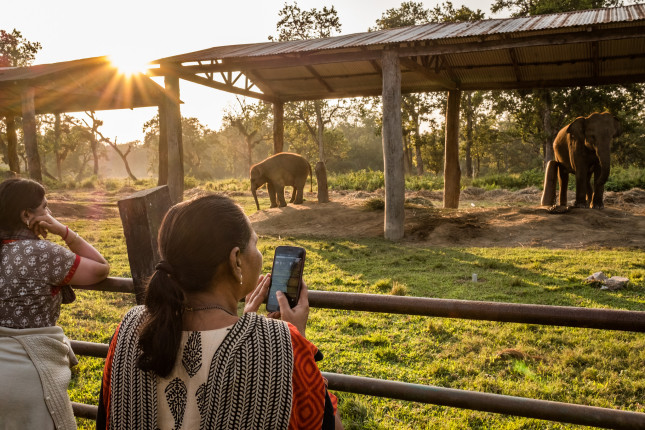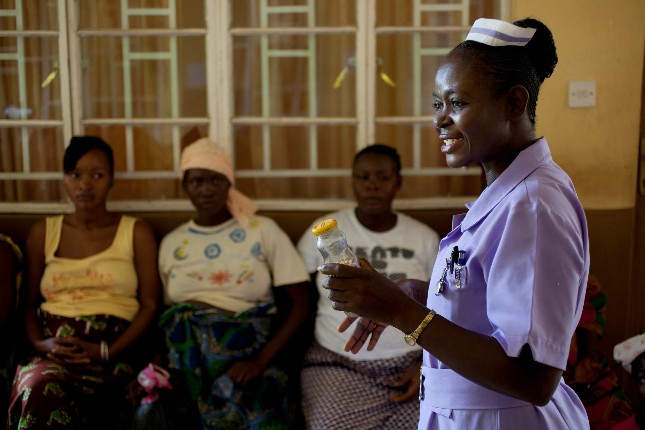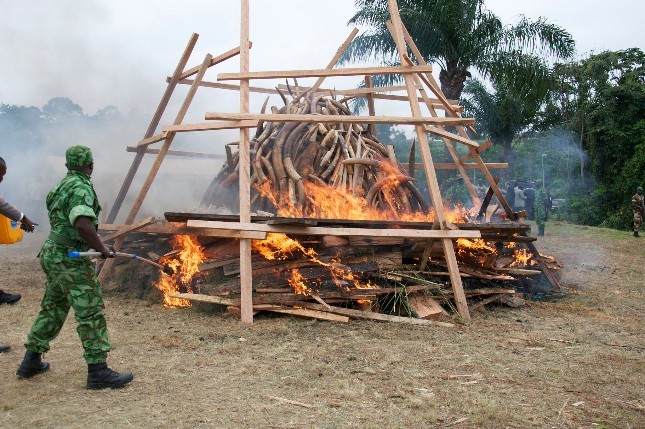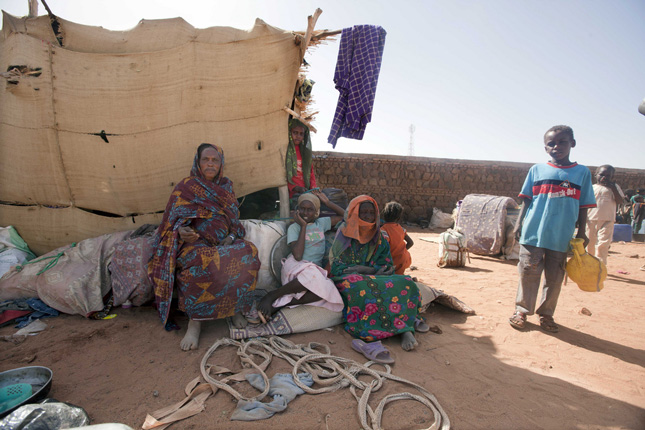-
“The River Belongs to the People”: Building Cooperation in the Mara River Basin
›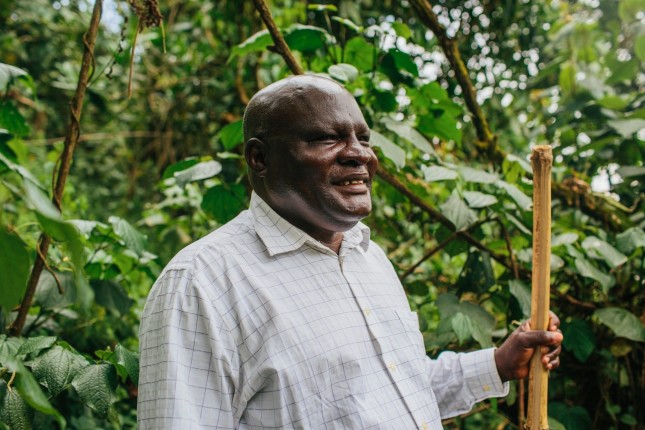
Water engineer Gordon Mumbo of USAID’s Sustainable Water Partnership grew up in the small Kenyan village of Kamuga. Year after year, he watched as frequent floods from one of Kenya’s major rivers, the Nyando, disrupted village life. After 30 years of a wide-ranging career in water, for the first time since his childhood, he has returned to his birthplace, where he leads a team building community engagement in the Mara River basin.
-
Green Conflict Minerals: Investigating Renewable Energy Supply Chains in Fragile States
›
The shift to a low-carbon economy is not only underway, it is accelerating. Last year, Costa Rica generated more than 99 percent of its electricity using renewable sources; Germany expanded its onshore wind power capacity by 5,300 MW, and in the United States, more than 62 percent of new power plants under construction will produce renewable energy. What does this rapid increase mean for the countries that supply the inputs required to build these new facilities—particularly those countries that are struggling with fragility or corruption?
-
The Crushing Environmental Impact of China’s Cement Industry
›
China—the world’s fastest-growing economy with the largest population—leads the world in cement production, the critical ingredient that has built China’s mammoth cities, sprawling roads, and other infrastructure. China pours 60 percent of the world’s cement; the country’s production in 2011-2013 surpassed U.S. production for the entire 20th century. While it paved the way for Chinese growth, it came at a dangerous cost: 1.6 million Chinese citizens die each year from respiratory illnesses linked to small particulate matter emissions, of which 27 percent come from cement production.
-
As Andean Glaciers Retreat, So Does Regional Security
›
Last month, Bolivia filed a counterclaim against Chile in the International Court of Justice—the latest salvo in their battle over rights to the waters of the Silala River. The court will decide whether Silala is “an international watercourse”—thus granting water rights to Chilean mining operations—or simply an artificial diversion of Bolivian spring water by Chile. This legal case marks the latest chapter in Bolivia and Chile’s historically delicate relationship, which dates back to the War of the Pacific in the late 19th century.
-
Evaluating Enterprise: Twenty Years of Conservation Through Sustainable Livelihoods
›
“It’s not often that we have the opportunity to go back to a site 20 years later and see what happened,” said Cynthia Gill, Director of USAID’s Office of Forestry and Biodiversity during a recent Wilson Center event on a retrospective evaluation of the “conservation enterprise” approach to biodiversity. Conservation enterprises are income-generating activities that provide social and economic benefits and help meet conservation goals.
-
The PHE Approach: Addressing Multiple Issues With Integrated Solutions
›
“The PHE [population, health, and environment] approach addresses the relationship between human health and environmental health, to improve primary healthcare services, conserve biodiversity and natural resources, and develop sustainable livelihoods,” said Sarah Harlan, the Learning and Partnerships Director at K4Health, introducing a recent webinar featuring three PHE leaders from Madagascar, East Africa, and the Philippines.
-
Bipartisan Lawmakers Fight Illegal Wildlife Trafficking, Promote Smart Development for Conservation
›
“In the last decade, almost half of Africa’s elephants have been killed for their ivory, and some experts are predicting that both elephants and rhinoceros will be extinct by 2030,” said Nancy Lindborg, President of the U.S. Institute of Peace at a recent event on wildlife poaching and trafficking. The illegal trade in protected wildlife is worth US$7-10 billion—some of which has ended up in the pockets of armed groups like Al-Shabaab and the Lord’s Resistance Army, said Lindborg.
-
The New Slave Trade: Migration, Trafficking, and Terrorists in Libya
›
While dismayed Americans watched the “zero tolerance” policy of family separation unfolding at the Mexican border, across the Atlantic, another shocking migration crisis continues to fester. Behind the grueling headlines of drownings in the Mediterranean Sea, migrants run a gauntlet of abuse through the Sahara desert to reach the Libyan coast. Armed militias and terrorist organizations across the Sahel profit by smuggling people displaced by climate, population, and security crises. While European policymakers struggle to cope with arrivals, their containment approach consistently disregards the root causes that force people to take such unimaginable risks. The high value of these human commodities not only exposes vulnerable migrants to torture, extortion, and even enslavement, but also provides funds for terrorist groups intent on attacking the West.
Showing posts from category environment.


